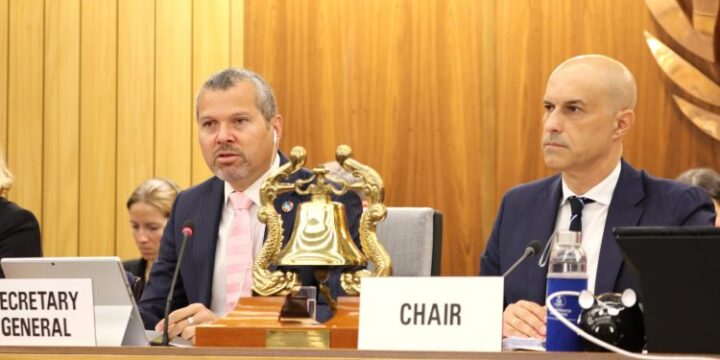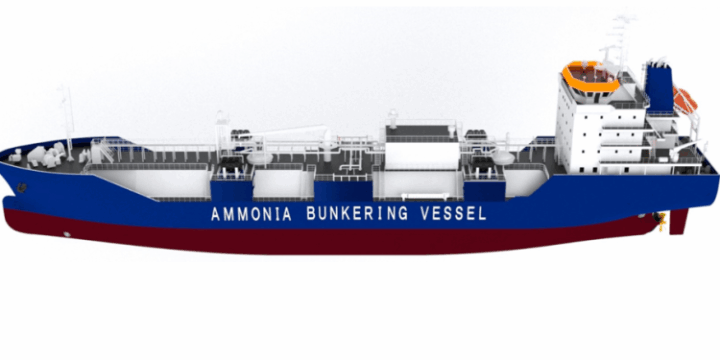July 14, 2025

The World Shipping Council (WSC) has issued a position paper recommending structured and strategic alignment of the EU Emissions Trading System (EU ETS) with the forthcoming IMO Net Zero Framework.
According to the World Shipping Council (WSC), alignment with global GHG pricing can help achieve EU climate objectives while avoiding the double burden of two GHG pricing systems for the same emissions. Alignment with IMO can preserve competitiveness and simplify unnecessary regulatory complexity.
- The IMO Net Zero Framework is a global turning point for maritime decarbonisation
IMO Member States are expected to adopt the IMO Net Zero Framework at the IMO Marine Environment Protection Committee meeting in October 2025. The agreement is the direct result of leadership by European nations, through a coordinated position driven by the European Commission and the willingness of numerous parties across the globe to forge an effective global agreement.
Furthermore, it will establish a global well-to-wake GHG pricing mechanism, integrated with performance-based GHG reduction requirements on fuels and technologies – a comprehensive regulatory architecture to decarbonize shipping in line with the Paris Agreement. The IMO Net Zero Framework is a critical milestone to reduce global shipping GHG emissions. The economic and regulatory principles of the EU ETS are reflected in the IMO Net Zero Framework.
The IMO Net Zero Framework integrates well-to-wake GHG pricing and GHG fuel intensity (GFI) targets in the IMO Net Zero Framework. Surplus Units generated through in-sector GHG reductions by ships can be exchanged with other ships, through market behaviour that is reported in the IMO GFI Registry. WSC firmly supports the adoption of the IMO Net Zero Framework as a critical step toward a global, effective, and enforceable regime for maritime decarbonization.
As the global association representing liner shipping, WSC has actively contributed at both the European and international level to the development of the framework through sustained technical engagement, policy input, and support for an ambitious, effective, and enforceable regulation.
- Alignment avoids double burden and preserves multilateralism
WSC believes that the EU ETS needs to align with international agreements to decarbonize global shipping in a coherent, effective and competitive manner. Given the global nature of maritime transport and seaborne trade, global GHG pricing will effectively drive fleet investments, operations, and technologies that serve EU ports, Member States as well as European businesses and communities. The double burden of applying two GHG pricing systems to GHGs in the same sector is inefficient.
Moreover, applying a regional GHG pricing system to international shipping on top of a global GHG pricing regime introduces unintended economic impacts on regional ports and trade. A global GHG pricing system contained in the IMO Net-Zero Framework avoids regional economic distortion signals that risk undermining EU competitiveness of European ports, supply chains, and businesses.
Aligning EU ETS with IMO demonstrates a strong commitment to multilateral solutions at a time when these agreements are increasingly difficult to reach and sometimes challenged by unilateralism.
- Alignment provides climate coherence with comparative benefits
Alignment of EU ETS with IMO offers coherence in scope and design that can be efficient, effective, and ambitious. While both the IMO Net Zero Framework and EU ETS target ships above 5,000 GT and apply GHG pricing, the IMO Net Zero Framework has a greater geographic scope than EU ETS for maritime transport.
IMO GHG pricing applies to global shipping emissions, providing roughly six times the coverage of the EU’s regional ETS for shipping. The IMO Net Zero Framework also integrates well-to-wake GHG pricing with clear GHG fuel intensity targets (e.g., 30%-40% reduction in 2035, 65% reduction in 2040, and net-zero by or about 2050).
EU ETS amendments with respect to international maritime transport can be made as part of the required review following adoption of the IMO Net Zero Framework. Alignment with the IMO Net Zero Framework preserves the environmental integrity and effectiveness of EU climate action, as promoted successfully at IMO by the European Commission and EU Member States. The IMO agreement is fully coherent with the EU Climate Law objective of achieving climate neutrality by 2050. A continued application of regional GHG pricing in parallel with a global mechanism creates a double regulatory burden.
Furthermore, dual regulatory systems have the potential to further distort regional trade and investment patterns. Continued application of a regional scheme also sends a contradictory message with respect to Europe’s stated commitment to a just and equitable global climate transition given the additional costs it imposes on numerous developing countries through exports, imports, and significant trans-shipment of cargoes through Europe to developing countries. Raising EU revenues from high seas shipping under a regional system would also weaken the EU’s multilateral credibility at a time when global cooperation is critical – not least with neighboring states.
EU ETS alignment with IMO can create opportunities for Europe to accelerate and catalyze the transition to renewable energy, fuels, and technologies. For example, the cost difference between fossil fuels and more sustainable alternatives remains considerable. This price gap may be narrowed but not closed through IMO global GHG pricing tied to GHG fuel intensity reduction targets that also allow for exchanging Surplus Units in an IMO GHG Registry.
Regional goals for energy independence and economic security could leverage market conditions provided by the IMO Net Zero Framework through measures that close the cost gap for renewable marine fuels sold in Europe. WSC will work with the European Commission and Member States to address this price gap to international maritime transport through stronger incentives for the uptake of renewable and low-carbon technologies and leveraging green fuel production potential.
Adoption of IMO’s Net Zero Framework and changes to the EU’s ETS will provide an opportunity to lessen or fully eliminate distortions to competition issues between ports. EU ETS legislation requires the European Commission to monitor for non-competitive behavior responses to regional GHG pricing, including transport cost increases, market distortions and changes in port traffic, and impacts on essential transport services of EU regional continuity in a global economy.
Moreover, according to the WSC, alignment with the IMO Net Zero Framework is the best way to remove non-competitive effects of GHG pricing on European ports. Coupling a global GHG pricing system with port investment in renewable fuels infrastructure and incentives for uptake of renewable marine fuels can secure competitiveness of European ports.
- EU climate action alignment and IMO Net Zero Framework implementation are welltimed for success
WSC supports the EU climate action goals and is ready to work with the European Commission on aligning EU ETS for maritime transport with implementation of the IMO Net Zero Framework. Timing for developing necessary revisions for maritime in the EU ETS appears well matched to expected implementation of the IMO Net Zero Framework. With an EU ETS revision proposal as early as the end of 2026 and expected entry-into-force of the IMO Net Zero in 2027, the colegislative process will be occurring during implementation of global GHG regulations for shipping.
The EU now has a strategic opportunity to pivot from unilateral action toward global leadership – reinforcing multilateralism, supporting effective implementation, leveraging green fuel production opportunities and preventing carbon leakage.
…the WSC stated.

